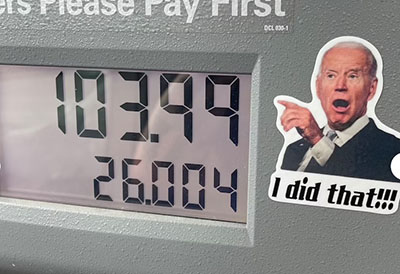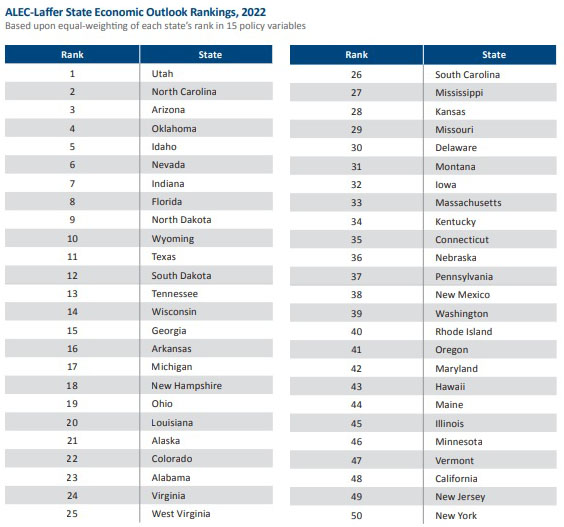by WorldTribune Staff, April 18, 2022
Jimmy Carter “malaise” has nothing on “Bidenflation”.
In the 12 months ending in March, consumer prices have risen a staggering 8.5%. March also marked the sixth straight month of inflation above 6%, and the 11th straight month above 5%.
 Fuel oil is up 70%; gasoline, 48%. All categories of food saw over 7% inflation.
Fuel oil is up 70%; gasoline, 48%. All categories of food saw over 7% inflation.
Joe Biden’s economic policies have caused a loss of 2.7% for monthly wages. “Bidenflation” is costing the typical American family (median household income of $67,500) at least $5,000 a year.
What is Team Biden doing about it?
Blaming Vladimir Putin and allowing “usually banned sales of high-ethanol gasoline over the summer, which impacts only the gas sold at 2,300 gas stations nationwide, out of around 150,000 total,” the New York Post editorial board noted on April 12. “Pathetic.”
And Team Biden is refusing to change course. Biden’s budget “calls for more taxes, more borrowing, more spending. He’s made no move to end his war on domestic energy. And he definitely won’t admit that his disastrous American Rescue Plan was, as a Fed study has shown, the spark that touched off this conflagration by dumping almost $2 trillion into an already overheating economy,” the New York Post noted.
From February to March along, gas prices rose 18.3%.
“Because of the actions we’ve taken to address the Putin price hike, we are in a better place than we were last month,” said White House press secretary Jen Psaki in attempting to explain the surge. “But we expect March [inflation numbers] to be extraordinarily elevated due to Putin’s price hike.”
That excuse, however, ignores price increases throughout every sector of the economy.
Under Team Biden, “the American people have become demonstrably poorer,” said E.J. Antoni, an economic analyst at the conservative Heritage Foundation. “Prices have surged so rapidly that real earnings — earnings adjusted for price changes — have dropped 4.5% on Biden’s watch.”
Americans are increasingly responding to the rise in prices by using credit cards to meet everyday expenses, according to a report issued by the Federal Reserve last week.
“You’ve got a nearly 8% inflation rate, which is rising faster than people’s incomes,” said Stephen Moore, an economic adviser to President Trump. “People are actually losing purchasing power because inflation is like a tax on earnings.”
Meanwhile, a new list of “Rich States, Poor States” by the American Legislative Exchange Council (ALEC) shows that Republican-controlled states are faring much better than those run by Democrats.
Eight of the 10 best states in terms of economic performance are Republican-controlled, while all in the bottom 10 are Democratic-controlled, with California, New Jersey and New York being the bottom three, the report said.
“Americans continue to vote with their feet toward states that have lower tax burdens and value economic competitiveness,” said Jonathan Williams, ALEC’s chief economist and executive vice president of policy.
“If you believe incentives matter, and I do, state policies have the effect of changing those incentives at both the state and local levels,” said Reagan-era economic adviser Arthur Laffer, a co-author of the report. “Those changes in incentives have consequences. This ranking of states is a tried-and-true formula. I think it is a great way of picking winners and giving guidance on how states should be effectively governed.”
Utah topped the report, which also showed a surge by North Carolina to No. 2 as the Tar Heel state’s Republican-controlled legislature continues to implement low-tax policies.
“This is a magic moment for tax reform at the state level,” said Moore. “I think even in some of these blue states that have been traditionally very liberal, they’re looking at reforms that could really make their states more prosperous. I think the direction is good, and I think a lot of that direction is a result of the Rich State, Poor State rankings.”

(See ALEC’s 15th “Rich States, Poor States” report here).
About . . . . Intelligence . . . . Membership
